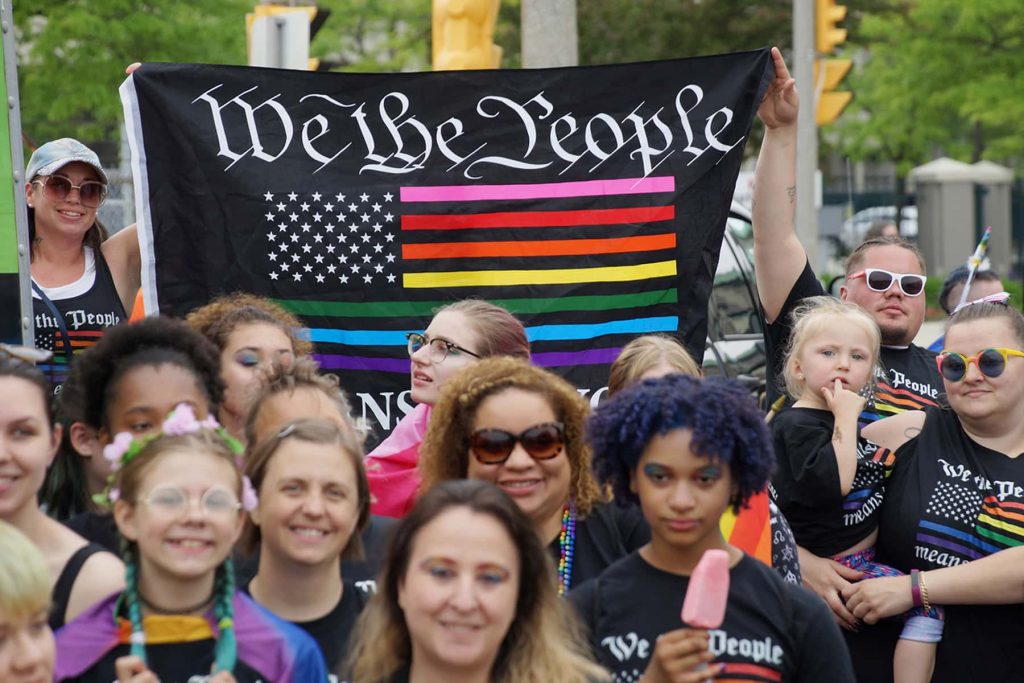
“Euclid’s first common notion is this: things which are equal to the same thing are equal to each other. That’s a rule of mathematical reasoning. It’s true because it works. Has done and always will do. In his book, Euclid says this is ‘self-evident.’ You see, there it is, even in that 2,000-year-old book of mechanical law. It is a self-evident truth that things that are equal to the same thing are equal to each other.” – Daniel Day-Lewis in Steven Spielberg’s Lincoln (2012)
And on July 4, 1776, the Second Continental Congress adopted the Declaration of Independence, declaring: “We hold these truths to be self-evident, that all men are created equal, that they are endowed by their Creator with certain unalienable rights, that among these are Life, Liberty and the Pursuit of Happiness.”
For all the fact that the congressmen got around the sticky problem of Black and Indigenous enslavement by defining “men” as “white men,” and for all that it never crossed their minds that women might also have rights, the Declaration of Independence was an astonishingly radical document.
In a world that had been dominated by a small class of rich men for so long that most people simply accepted that they should be forever tied to their status at birth, a group of upstart legislators clinging to the edge of a continent declared that no man was born better than any other. America was founded on the radical idea that all men are created equal.
What the founders declared self-evident was not so clear eighty-seven years later, when southern white men went to war to guarantee that Black Americans, Indigenous Americans, Chinese, Mexicans, and Irish would be permanently locked into a lower status than whites. In that era, equality had become a “proposition,” rather than “self-evident.”
“Four score and seven years ago,” Abraham Lincoln reminded Americans, “our fathers brought forth on this continent, a new nation, conceived in Liberty, and dedicated to the proposition that all men are created equal.” In 1863, Lincoln explained, the Civil War was “testing whether that nation, or any nation so conceived and so dedicated, can long endure.”
It did, of course. The Confederate rebellion failed. The United States endured, and as people of different races, incomes, genders, and abilities began to demand that the nation honor its founding principles, Americans began to expand the idea that all men are created equal.
But just as in the 1850s, we are now, once again, facing a rebellion against the idea of equality, as a few wealthy men seek to reshape America into a nation in which certain people are better than others.
The men who adopted the Declaration of Independence on July 4, 1776, pledged their “Lives, [their] Fortunes and [their] sacred Honor” to defend the idea of human equality, however limited they were in executing it. Ever since then, Americans from all walks of life have sacrificed their own fortunes, honor, and even their lives for that principle.
Lincoln reminded Civil War Americans of those sacrifices when he urged the people of his era to “take increased devotion to that cause for which they gave the last full measure of devotion — that we here highly resolve that these dead shall not have died in vain — that this nation, under God, shall have a new birth of freedom — and that government of the people, by the people, for the people, shall not perish from the earth.”
Words to live by in 2021.
Rеhаn Syеd
Letters from an Аmerican is a daily email newsletter written by Heather Cox Richardson, about the history behind today’s politics














